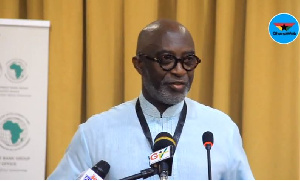402m people unable to find jobs globally – ILO

The International Labour Organization (ILO), has stated that about 402 million people worldwide are willing to work but are not able to find jobs.
Out of these 402 million people, there are 186 million unemployed people, 137 million who are temporarily unavailable to work and 79 million discouraged workers who have stopped looking for jobs.
The report, ‘World Employment and Social Outlook: Trends 2005’, disclosed that while the gap has been gradually narrowing since the coronavirus pandemic, it is expected to stabilize in about two years.
According to the report, global economic watchers were very optimistic in 2024 as global employment grew in line with the labour force, keeping the unemployment rate steady at five per cent.
Parts of the report read: “Among young men participation has fallen sharply, with many not in education, employment or training (NEET).
“This trend is especially pronounced in low-income countries, where NEET rates for young men have risen by nearly four percentage points above the pre-pandemic historical average, leaving them vulnerable to economic challenges.
“NEET rates in low-income countries rose in 2024, with young men reaching 15.8 million (20.4 per cent) and young women 28.2 million (37.0 per cent), marking increases of 500,000 and 700,000 respectively from 2023.
“Globally, 85.8 million young men (13.1 per cent) and 173.3 million young women (28.2 per cent) were NEET in 2024, up by 1 million and 1.8 million respectively from the previous year.
“The study identifies potential for job growth in green energy and digital technologies. Renewable energy jobs have grown to 16.2 million worldwide, driven by investment in solar and hydrogen power.
“However, these jobs are unevenly distributed, with nearly half based in East Asia. Digital technologies also offer opportunities, but many countries lack the infrastructure and skills to fully benefit from these advancements.”
The Director-General of the ILO, Gilbert Houngbo, reacting to the findings of the report, highlighted the urgent need for action.
He said: “Decent work and productive employment are essential for achieving social justice and the Sustainable Development Goals.
“To avoid exacerbating already strained social cohesion, escalating climate impacts, and surging debt, we must act now to tackle labour market challenges and create a fairer, more sustainable future.”
Source: www.mynigeria.com





